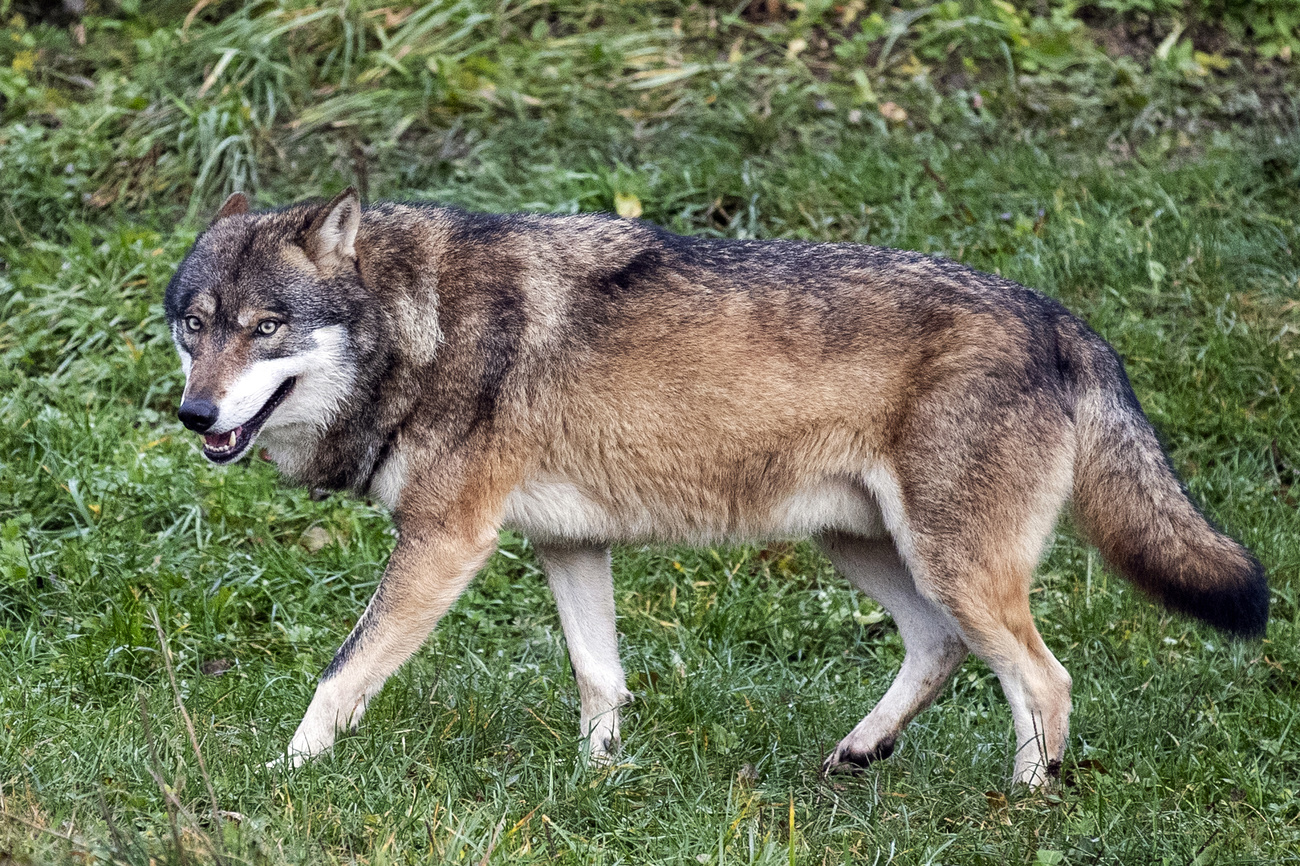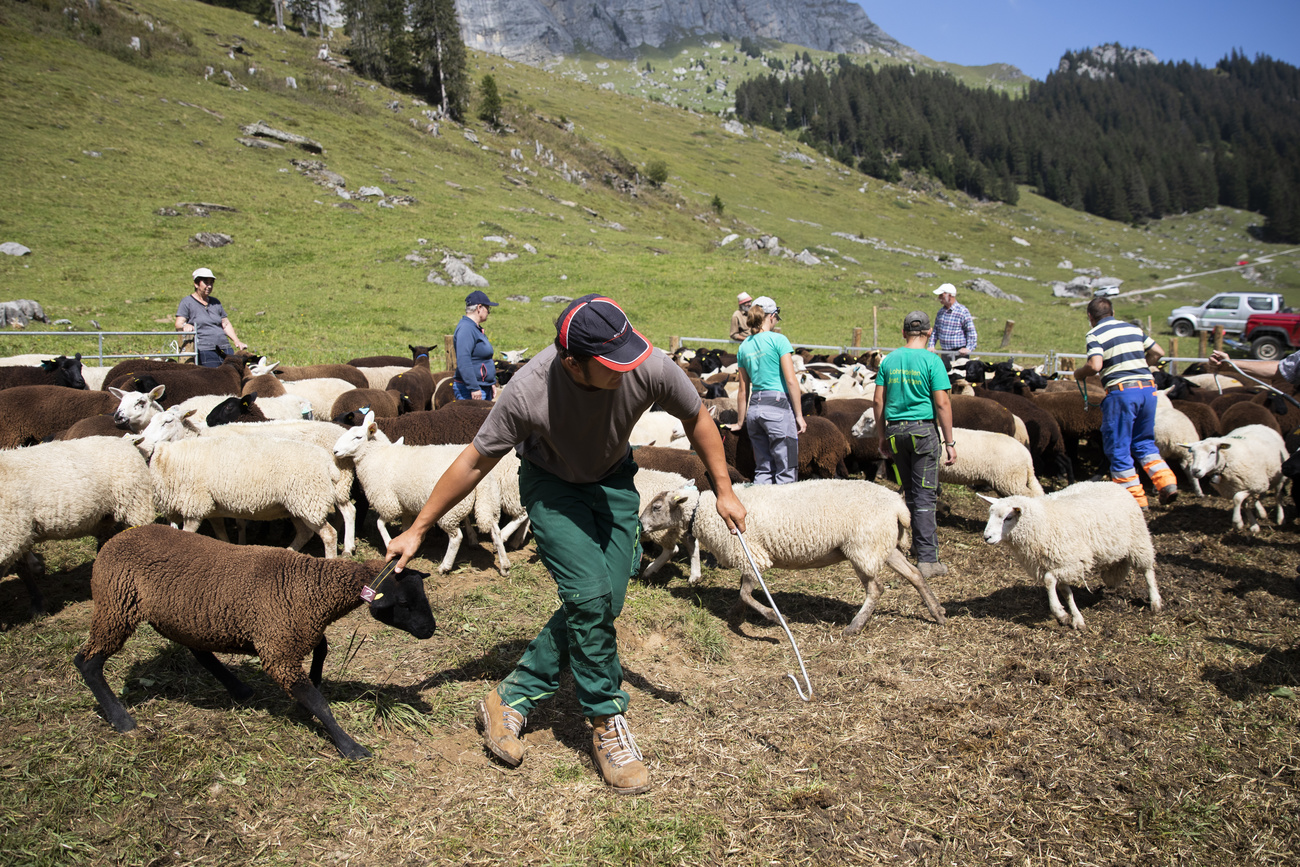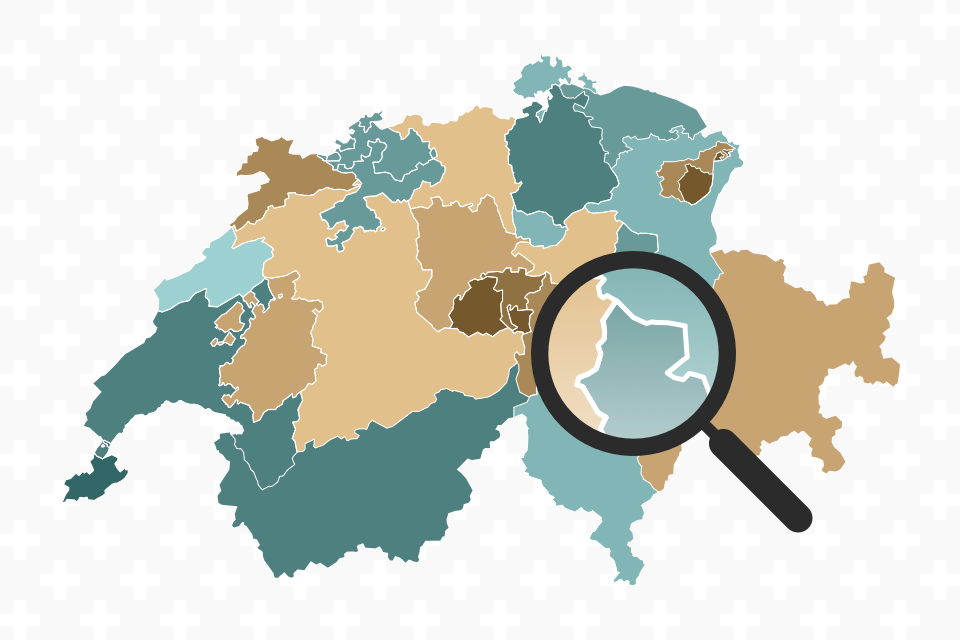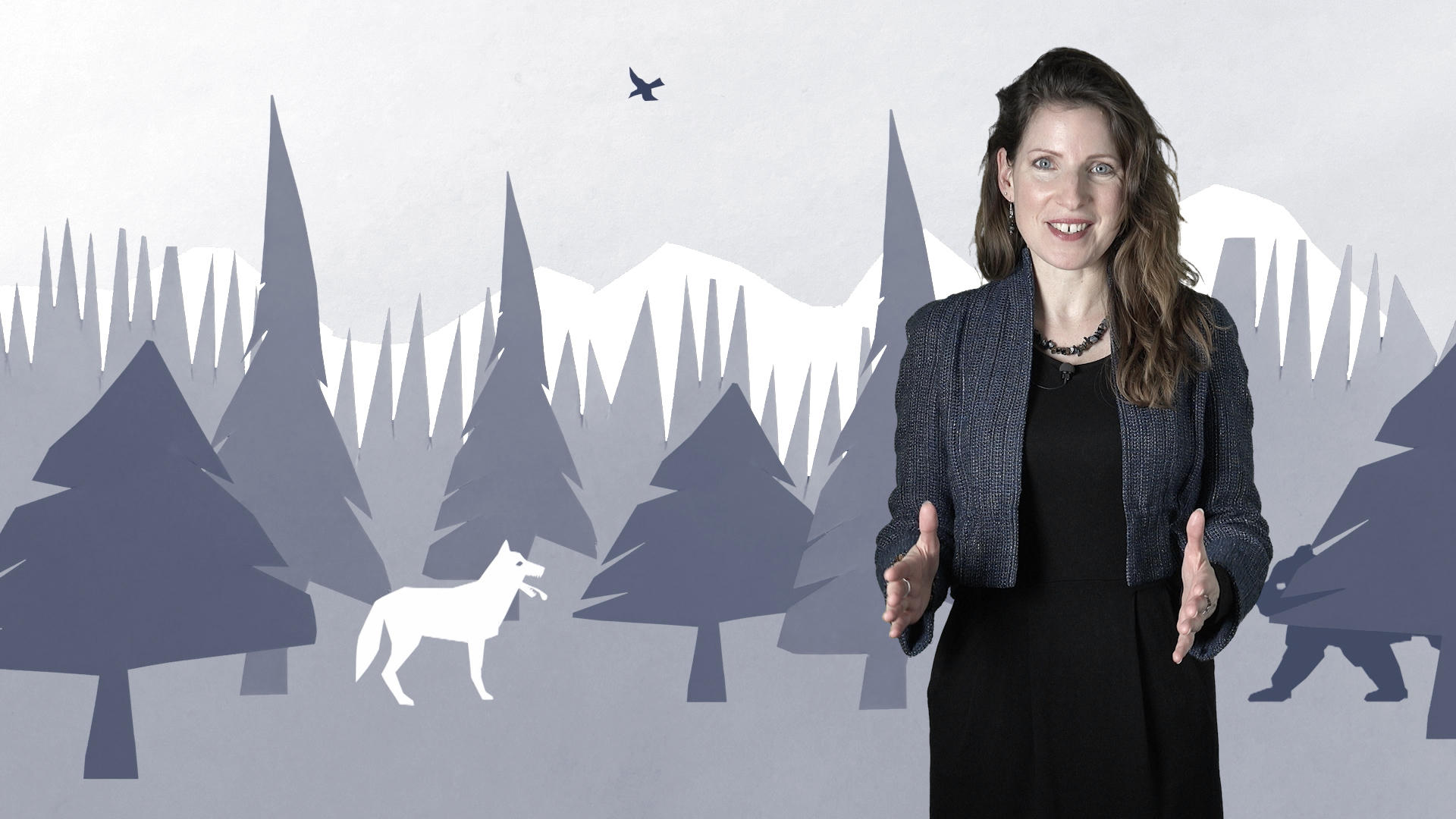Voters decide not to water down wolf protection

More than half of Swiss voters (51.9%) have rejected parliament’s changes to the hunting laws. The regulation of the wolf, a protected species, was at the centre of the debate.
“The result shows that the Swiss population wants to strengthen and not weaken species protection,” said Gabor von Bethlenfalvy, large carnivore specialist at WWF Switzerland, in a press release on Sunday.
He added that by saying no to the revised law, voters were saying yes to a compromise between hunting, regulation and protection. His group was one of many conservation and animal welfare groups to launch the referendum challenging Swiss lawmakers’ revisions to the law.
“Now parliament gets the chance to draft a progressive hunting and protection law that will continue to protect threatened animals such as lynx and beavers and not put them under even greater pressure,” von Bethlenfalvy said.
The results reflect a missed chance, counter those who were in favour of the amended law.
“With this decision, the voters have missed the opportunity to strengthen animal and species protection and to set clear rules for the coexistence of wolves and farm animals,” stated the Swiss farmers’ and hunters’ associations and the committee for mountain regions in a joint press release.
They blamed the result on the “million-franc campaign” of their opponents. “A progressive hunting law is now a long way off,” they wrote.
Lukas Golder, a political scientist from the leading GfS Bern research institute, pointed out an urban-rural divide on the issue. “But even in cantons Graubünden and Valais, a relatively large number of ‘no’ votes were cast,” Golder told Swiss public television, SRF. Voter turnout was 59.4%, which is much higher than usual.
As Environment Minister Simonetta Sommaruga remarked on Sunday evening, rural cantons such as Aargau and Jura had also rejected the law.
“The debate about this law has often been emotional. For the government it is important that the ‘no’ vote is not directed against mountain regions or alpine farmers. No region should be left behind,” said Sommaruga, adding that nature protection was a joint concern. The Swiss government had recommended that voters agree to the amendments.
Anti-immigration initiative: 38.3% Yes 61.7% No
Credit for fighter jets: 50.2% Yes 49.8% No
Paternity leave: 60.3% Yes 39.7% No
Tax breaks childcare: 36.8% Yes 63.2% No
Reform hunting law: 48.1% Yes 51.9% No
Turnout: 59.4%
It was the second set of nationwide votes this year. A ballot scheduled for May was cancelled due to the Covid-19 crisis.
Around 5.4 million Swiss citizens, including registered expatriate Swiss, were eligible to take part in the votes.
There were also numerous ballots at cantonal and local levels on September 27.
A year ago, parliament adapted the national legislation on hunting. The changes – inspired in particular by concerns about Switzerland’s growing wolf population – would have allowed the cantons to cull wild animals that they considered problematic without asking for federal permission.
This could also have affected species such as lynx, beaver, ibex, swan, grey heron and Eurasian otter. At the same time, the amended law would nearly have doubled the annual federal budget – to CHF4 million ($4.3 million) – for Switzerland’s 80 wildlife reserves and bird sanctuaries.
In response, environmentalists and animal rights activists launched the referendum calling for a nationwide vote challenging the parliamentary decision. Groups such as Pro Natura, WWF Switzerland and BirdLife said that the amendments made it too easy to kill animals that should be protected for the sake of biodiversity – including animals that have neither attacked livestock nor caused any other damage.
Against and for
Several political parties campaigned against the reformed law, among them the leftwing Social Democrats and Green Party and the centrist Liberal Greens. They said that the existing legislation already provided sufficient options for dealing with problem animals – including the option to shoot them if need be. They also pointed out that the revised law did not increase protection for threatened species such as grouse, woodcock, and hare.
Proponents of the proposed reform – the conservative right Swiss People’s Party and most branches of the centrist Christian Democrats and the centre-right Radical-Liberals – had argued that the Swiss wolf population was growing too quickly. There are currently about 80 wolves living in Switzerland, compared to a handful between 1995 and 2000 – and none in 1986, when the original law was drafted. The Swiss farmers’ and hunters’ associations were in favour of the reform, as was the committee for mountain regions.

They had pointed out that the wolf would remain a protected species despite its numbers being regulated at the local level. They also noted that the reform would have required farmers to build better fences or engage livestock guarding dogs to qualify for compensation in the event of a fatal wolf attack. Wolves kill 300-500 sheep and goats per year, according to the KORA foundation, which monitors carnivores in Switzerland. In comparison, each year thousands of sheep die after falling down mountains or becoming ill.
About a third of Swiss animal and plant species are under threat. Many, including the wolf, are protected under the Council of Europe’s Bern Convention on the Conservation of European Wildlife and Natural Habitats. Current Swiss law allows a wolf to be shot if it kills more than 25 livestock.

More
Vote results: September 27, 2020

In compliance with the JTI standards
More: SWI swissinfo.ch certified by the Journalism Trust Initiative














You can find an overview of ongoing debates with our journalists here . Please join us!
If you want to start a conversation about a topic raised in this article or want to report factual errors, email us at english@swissinfo.ch.